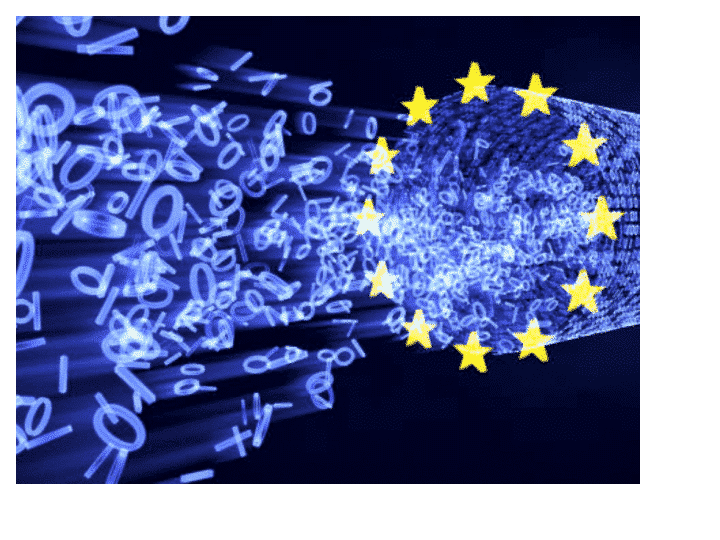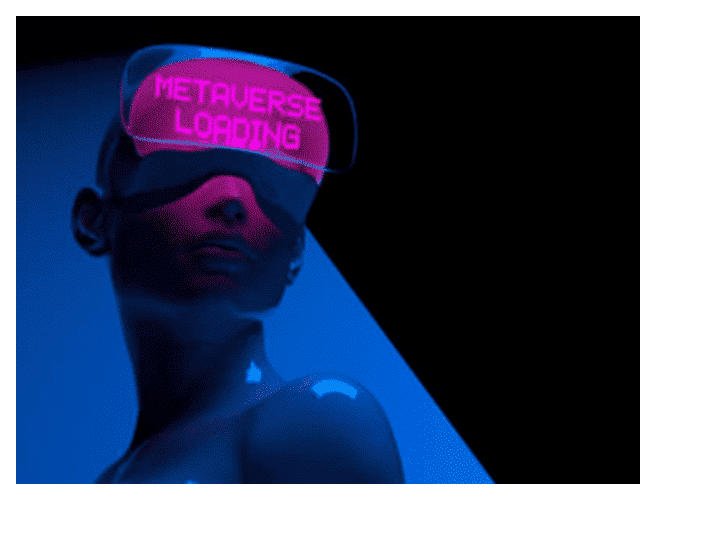
The EU Metaverse Regulation includes rules and regulations to regulate the metaverse landscape in the EU. It aims to protect user protection, privacy, and ethical norms in the rapidly growing virtual worlds and digital economy. The regulation explores innovative governance strategies to foster innovation, economic progress, and user trust.
Exploring the EU Metaverse Strategy:
The EU Metaverse Strategy aims to create a comprehensive framework for metaverse regulation. It entails coordinated efforts from stakeholders, industry experts, and legislators to solve various issues, such as privacy, competition, and individual rights.
Within the metaverse ecosystem, the strategy strongly emphasizes fostering fair competition, protecting user privacy, and upholding individual rights. The EU seeks to establish a futuristic regulatory framework that encourages innovation and responsible metaverse development by reviewing current regulations and adapting them to the difficulties of the metaverse.
Key Considerations of EU Metaverse Regulation: Privacy, Competition, and Individual Rights:
A major concern of the EU Metaverse Regulation is privacy. As users immerse themselves in virtual worlds, personal information about them may be gathered, saved, and shared. The EU is aware of the need to set up strong privacy safeguards that allow users control over their data and guarantee adherence to data protection laws.
The EU wants to increase user confidence in the metaverse ecosystem by applying privacy-by-design principles and enforcing transparency from metaverse platforms.
Another important factor is ensuring fair competition. The EU Metaverse Regulation aims to protect developers and metaverse platforms from monopolistic practices and to create a level playing field for them.
The EU wants to promote a diversified and competitive metaverse market advantageous to enterprises and users by promoting interoperability, data portability, and open standards.

The EU wants to build a welcoming and empowering metaverse environment that upholds the rights and dignity of every person. To that end, it has established clear criteria for content control, user consent, and protection against discrimination.
The Impact of the EU Metaverse Party in Shaping Metaverse Regulation:
The European Commission committed €387k to an online virtual reality platform to excite young people about Global Gateway, launched a year ago. The internet portal began a few weeks ago to mostly negative reviews. When just five people, including one journalist, attended an EU metaverse party, this criticism became derision.
By fostering a collaborative approach, the party ensures that all relevant perspectives are considered, resulting in regulations that balance innovation with safeguards. The EU Metaverse Party paves the way for responsible and inclusive metaverse development through strategic initiatives like exploring blockchain technology and Play-to-Earn games.
By leveraging its leadership position, the party drives the adoption of ethical practices and empowers users in the metaverse ecosystem.
Balancing Innovation and Safeguards in the Metaverse:
The EU understands the value of balancing innovation and security measures in the metaverse. It strives to build regulatory mechanisms that safeguard users and uphold ethical standards while supporting technical advancements and creative potential.
The EU aims to ensure that the metaverse develops sustainably and securely by supporting responsible innovation and proactive risk management. This well-rounded strategy attempts to achieve a harmonic balance between encouraging innovation and defending the needs of consumers and society at large.
Collaborative Approach: Stakeholders and Experts:

This collaborative approach ensures that many viewpoints are considered and that the regulations reflect the requirements and interests of all parties.
The EU seeks to establish an informed, workable, and flexible legal system to accommodate the metaverse’s dynamic nature by creating collaborations and encouraging discourse.
Opportunities, Risks, and Solutions
Virtual worlds will alter EU business and employment with an anticipated €800 billion worldwide growth by 2030 and 860,000 new jobs by 2025. Opportunities, Success Stories and Challenges (Health, Education)” found that 98% of professionals interviewed thought that XR technology would greatly advance their industries during the next five years. Benefiting sectors include:
Healthcare: Virtual worlds will speed up and improve diagnosis and treatment.
Education: These technologies can improve soft skills training efficiency and cost. Another virtual trend is foreign language study.
Art and Creativity: Users engage in a virtual world of museums, galleries, and archives, experiencing the exhibition as if they were there. Virtual worlds allow architects to walk through 3D structures for a realistic view of their designs.
Logistics, engineering, and manufacturing: Companies may safely teach employees globally about tool usage. They may also test manufacturing lines or complicated architectural structure prototypes to find flaws before turning on new features, saving time and money.
Like the internet, these tremendous prospects have drawbacks. These include awareness, trustworthy information, digital skills, user acceptance and confidence in new technology, and fundamental rights issues. European Digital Rights and Principles support sustainable, human-centred digital change. EU ideals and basic rights will shape future virtual worlds.
Upholding Individual Rights in the Digital Landscape:

The EU creates a welcome and empowering metaverse where individuals can express themselves and have rewarding digital experiences by preserving fundamental rights.
Leading the Way: The Vision of EU for the Future of the Metaverse:
The EU holds a position of leadership in shaping the future of the metaverse, driven by its commitment to responsible innovation. With a forward-thinking approach, the EU seeks to create a secure, diverse, and user-centric metaverse.
The EU sets a high standard for metaverse development by implementing regulations that address privacy concerns, encouraging fair competition, and protecting individual rights. The EU promotes interoperability, standards, and best practices that foster innovation and user trust through strategic partnerships and collaboration with industry leaders.
By taking a proactive role in shaping the future of the metaverse, the EU aims to unlock the full potential of this transformative digital landscape.
Conclusion:
The EU metaverse regulation is motivated by a vision for responsible innovation that balances technology’s growth and people’s interests. The EU seeks to promote an open, competitive, and secure metaverse environment through a collaborative process involving stakeholders and subject matter experts.
The EU establishes rules to ensure user trust, fair competition, and respect for fundamental values by focusing on privacy, competition, and individual rights. The EU is dedicated to fostering an environment that encourages innovation, protects user interests, and lays the path for a thriving and responsible metaverse landscape because of its leading position in determining the future of the metaverse.



